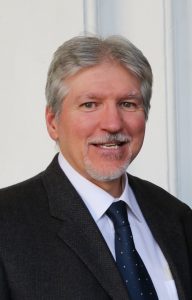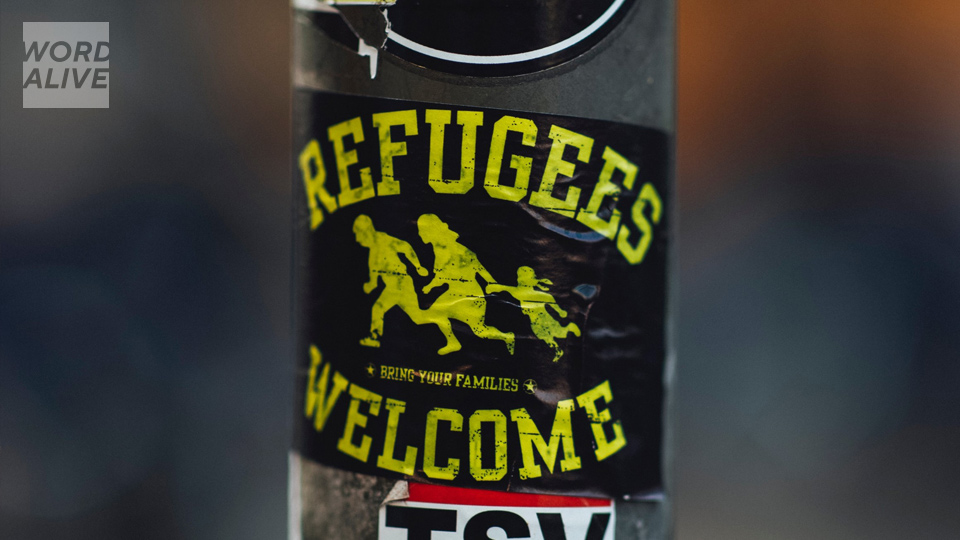We are always first when we put our trust in God
A reflection for the Twenty-fifth Sunday in Ordinary Time, Year A
by Carl Hétu
The Lord is near to all who call upon him. (Psalm 145:18a)
When looking at this Sunday’s readings, I can’t help but think of all the times when I’ve felt that all is lost, yet at the same time feel God’s presence very near.
Ten years ago, I visited Syria. I recall being impressed by so many people of different religions and ethnicities living together in peace and respect. I could not have foreseen the war and division that were to come. It took a springtime rebellion to push the fault lines and, sadly, ten springs later, they’ve still not stabilized.
When I met Yousef (not his real name) in Lebanon in 2014, he was a refugee from this Syrian conflict. A successful Christian business owner, he had provided employment to Syrians of all ethnicities and backgrounds. Things had been fine until conflict erupted and people started to lose their economic stability. Revenues started to plummet, people were laid off, and then he was kidnapped by former employees. They put a ransom on his life. A few months later, he was told that he and his Christian community were no longer welcome in the country.
“For to me life is Christ, and death is gain.” (Philippians 1:21)
When I met him, two years after his arrival in Lebanon, he and his family were living in a one bedroom apartment along with his brother’s family. They were among the more than 1 million Syrians who had to flee. In Lebanon, a different form of discrimination awaited them. Despite the great generosity of a particular local Melkite Catholic Church, which the Catholic Near East Welfare Association (CNEWA) supported and which led to our encounter, Yousef had to come to terms with the fact that, as a Syrian, he might never be accepted by his closest neighbours. With a return to Syria being next to impossible, Yousef prayed hard for emigration anywhere.
“Seek the Lord, while He may be found. Call him while He is near.” (Isaiah 55:6)
In 2016, Yousef and his family were welcomed to Canada through private sponsorship by a local church, part of a federal refugee program which brought 25,000 Syrians into the country. They were extremely grateful for the opportunity. After years without any formal education, the children are now back in school, and Yousef and his wife have found work. That said, despite all of the good people they have encountered here, they have now started to experience some of the disadvantages that come with being Arab in Canada, and insecurities, eerily similar to the ones they faced in the past, have resurfaced. Like many people in our world, Yousef cannot find a way to outrun discrimination.
“The last will be first, and the first will be last.” (Matthew 20:16)
But one thing is clear to Yousef and his family: From the time they lost it all and became last – as it seemed, their faith has grown even stronger and has helped them survive the deepest and darkest moments of their lives as they faced the unknown. Despite the atrocities they experienced, they also met God’s mercy and compassion in people who gave them hope. Their faith in Jesus put them first.
During the past few decades, our world has seen large movements of peoples while, at the same time, entering a new phase of globalization. People of different cultures, language, colours, and backgrounds increasingly share national boundaries and close quarters. With climate change, ongoing conflicts, poverty, and injustice, even more people will be on the move despite the current pandemic, changing the traditional demographic composition of many a country at an unprecedented rate. But the outcome does not have to be destabilizing. There is an opportunity to build a better world where we can all live safely – in a stable and free way. But how do we get there?
We seek the Lord, while He is found, we call to God, who is ever near; we live our lives in Christ, so that death is gain. And we live and work, as the parable suggests, grateful for the graces we are given each day and not envious of our neighbours because our God is a generous God who provides for our needs.
In 1948, the
Universal Declaration of Human Rights was adopted at the United Nations. It contains a blueprint for the world most of us are looking for. Let us set aside some time to read it and remind ourselves of its articles. Perhaps it will help us prepare for the long-term changes that are needed to find peace.
And as we commemorate the Catholic Church’s World Day of Migrants and Refugees on September 27, let’s remind ourselves of how Yousef and his family, who relied on the grace of God and their faith in Christ, were able to rebuild their lives thanks to the generosity of welcoming communities who put people first despite their race, nationality, and religion.
(An earlier version of this reflection was published on June 19, 2020, by Catholic Saskatoon News
.)
The readings for the Twenty-fourth Sunday in Ordinary Time, Year A, are
Isaiah 55:6-9
Philippians 1:20c-24, 27a
Matthew 20:1-16a
 Carl Hétu is the Canadian National Director of the Catholic Near East Welfare Association, an agency of the Holy See that supports the Eastern churches and peoples of the Middle East, Eastern Europe, Northeast Africa, and India. Information at cnewa.ca.
Carl Hétu is the Canadian National Director of the Catholic Near East Welfare Association, an agency of the Holy See that supports the Eastern churches and peoples of the Middle East, Eastern Europe, Northeast Africa, and India. Information at cnewa.ca.


 Carl Hétu is the Canadian National Director of the Catholic Near East Welfare Association, an agency of the Holy See that supports the Eastern churches and peoples of the Middle East, Eastern Europe, Northeast Africa, and India. Information at cnewa.ca.
Carl Hétu is the Canadian National Director of the Catholic Near East Welfare Association, an agency of the Holy See that supports the Eastern churches and peoples of the Middle East, Eastern Europe, Northeast Africa, and India. Information at cnewa.ca.
